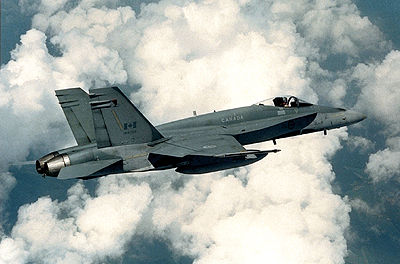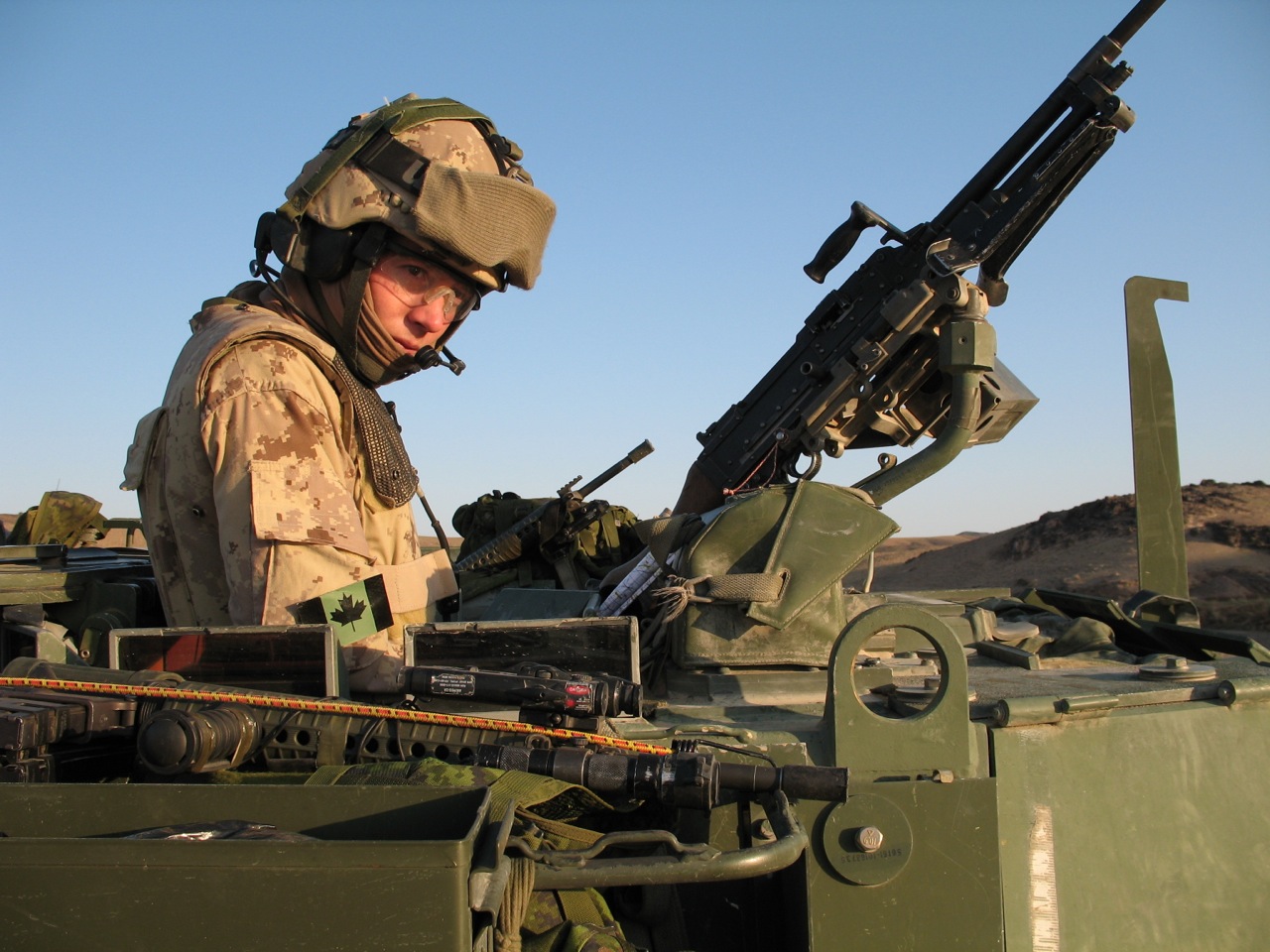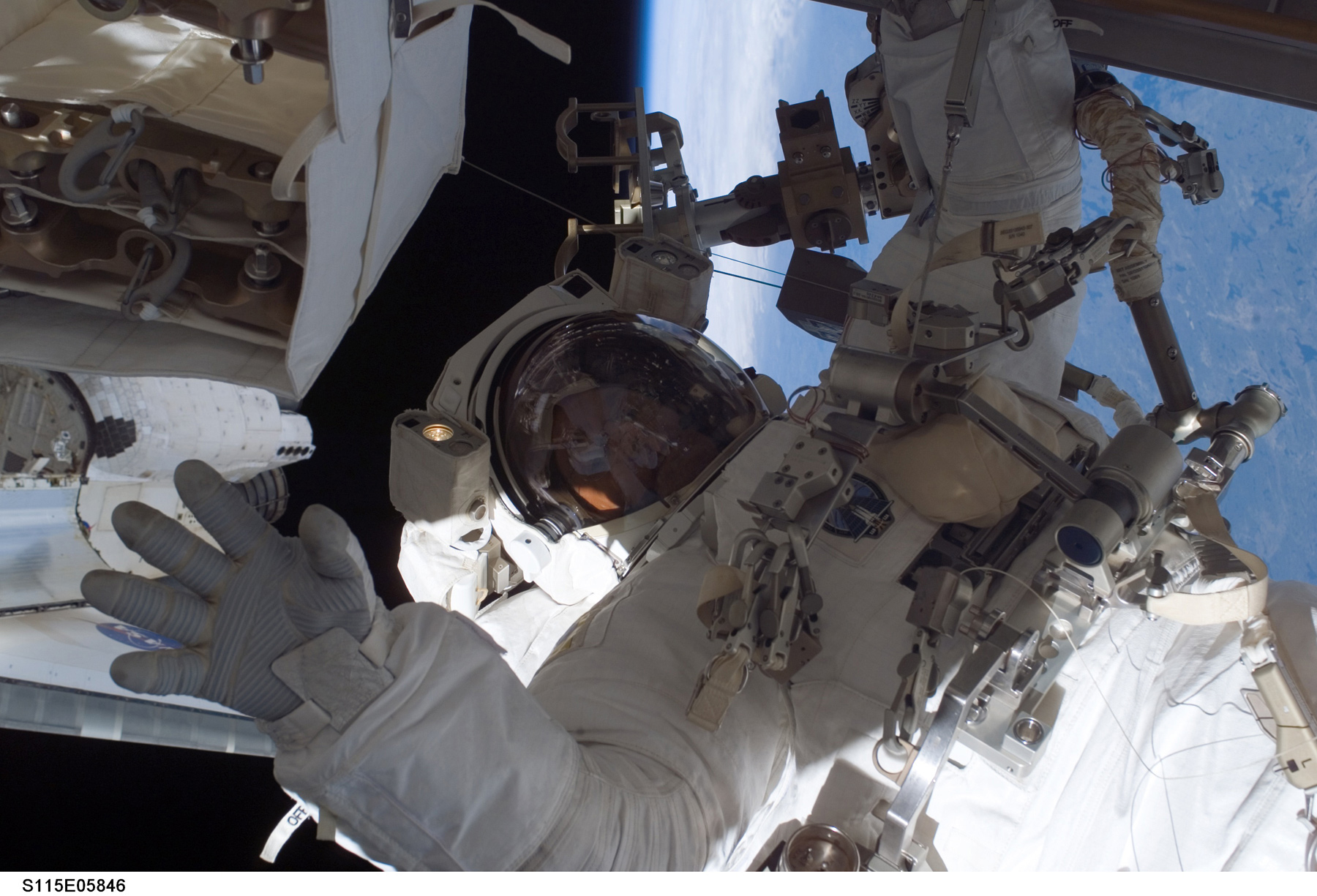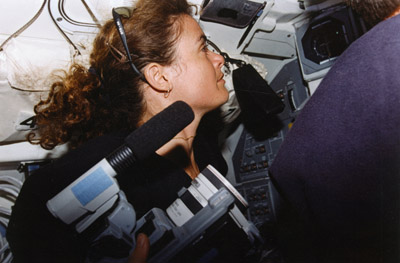Intercepting the Soviets
Long before he rode rockets into space on widely heralded adventures with NASA, Colonel Chris Hadfield flew risky, fighter jet missions for
During his first night on standby in Bagotville, Hadfield and fellow pilots were scrambled to intercept a group of Soviet "Bear" bombers flying south through Canada, just off the coast of Labrador.
"At that time the Soviets were flying their long-range bombers into Canadian airspace for a couple of reasons. Sometimes they took shortcuts through
"We were obliged to get to them before they could get to the line where they could release those things. So we would be scrambled in the middle of the night, in our armed CF-18s, to intercept them and see what they were up to."

That first night on duty, Hadfield vividly remembers finding the enormous bombers flying high above the sea, their engines humming as they plowed through the darkness. Turning on his fighter's search lights, he lit up the Soviet planes and shadowed them through the early dawn hours until they had left Canadian airspace.
It was the first ever intercept of a Soviet Bear bomber by one of Canada's new CF-18 fighters - a feat Hadfield repeated seven more times for his country.
"What surprised me at the time," he says, "was that we couldn't tell anybody about these intercepts. It was a secret, but I couldn't figure out who we were keeping it a secret from.
"The Soviets knew we had intercepted them, and to me it seemed like, 'Hey, people should know this is why we have CF-18s doing this work. We are actively defending our own airspace against invading, armed aircraft.' But it wasn't until many years later that those incidents were made public."
A Debt of Thanks
Today, says Hadfield, Canadians still aren't very good at explaining, understanding or recognizing the work done by their armed forces. Yet every day soldiers, sailors and airmen still carry out difficult, dangerous tasks for their country at home and abroad - work that mostly goes unreported and unheralded.
He says Remembrance Day should be a time to honour not only the risks and sacrifices of former military warriors, but today's military, too.
"I feel a personal debt of thanks to all the folks who are serving in the Canadian military around the world right now," he says. "I don't think they get thanked nearly enough, and they get put in some horrific positions, with responsibilities that far outstrip those faced in the regular, daily lives of ordinary Canadians. We should all take some time to think about them."
Not that the veterans of
When Hadfield graduated from
"There was a strong sense of that history in my family," he says. "I was raised with a tremendous respect and sense of debt to the people that had fought on our behalf, and to me it was always a very patriotic and important part of society that interested me."
Honoring Peacetime Warriors
Hadfield says that today's military members - many of whom carry out their duties in risky environments, with few tools or resources, but a large amount of improvisation - are equally deserving of our recognition and respect.
"We are horrifically overtaxed in the military today," he says. "Canadians have a tremendous expectation of our military to be very competent, but they're not also willing to give them the tools to do that. So we rely on great individual effort and creativity to get things done in the armed forces. It's a very demanding job.
"So I'm extremely proud of our military and for what it does for

 Share on Facebook
Share on Facebook Share on X
Share on X Share by Email
Share by Email Share on Google Classroom
Share on Google Classroom







